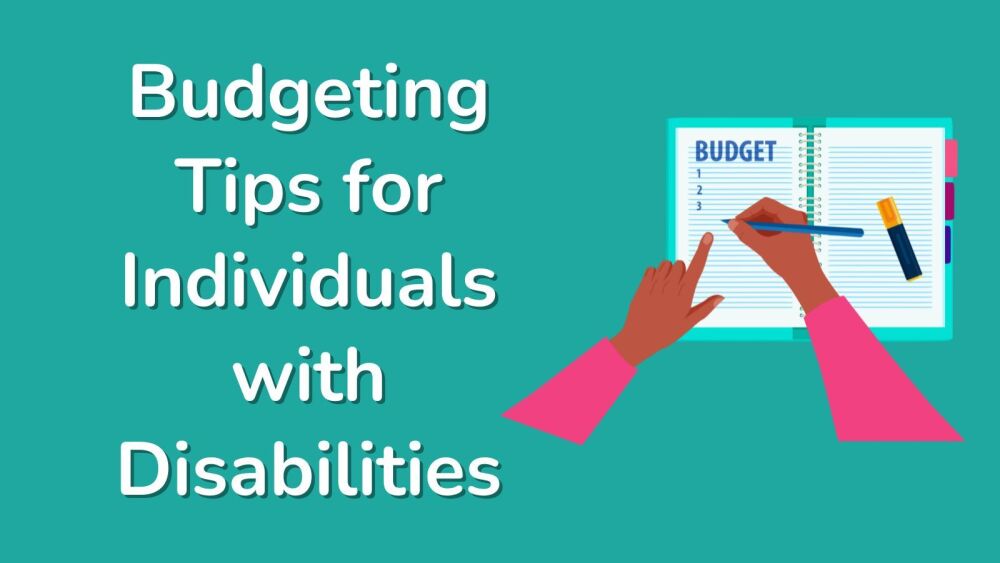Budgeting Tips for Individuals with Disabilities
Posted on
Living with a disability can present unique challenges, and managing finances is often one of the more intricate aspects of daily life. From medical expenses to adaptive equipment costs, individuals with disabilities may find it crucial to adopt effective budgeting strategies to ensure financial stability and independence.
Read on for some helpful budgeting tips for individuals with disabilities.

Prioritise Essentials:
The foundation of any effective budget lies in distinguishing between needs and wants. For individuals with disabilities, prioritising essentials becomes even more critical. Start by identifying necessary expenses such as medical bills, medications, and adaptive equipment. Understanding your core needs will guide you in allocating your budget to the most vital aspects of your life.
Create a Detailed Budget Plan:
Developing a detailed budget plan is key to financial success. List all your income sources and categorise your expenses. Consider dividing expenses into fixed costs (rent or mortgage, utilities) and variable costs (groceries, entertainment). This breakdown provides a clear picture of where your money is going and helps in identifying areas where you can cut back or save.
Explore Disability-Specific Financial Assistance Programs:
Many governments and organisations offer financial assistance programs specifically designed for individuals with disabilities. Research and explore these programs to determine if you qualify for additional support. From disability benefits to grants for adaptive equipment, taking advantage of available resources can significantly alleviate financial burdens.
Save for Future Needs:
Planning for the future is crucial for anyone, but it becomes even more vital for individuals with disabilities. Create an emergency fund to cover unexpected expenses, such as urgent medical needs or repairs to adaptive equipment. Having a financial safety net provides peace of mind and reduces the stress associated with unforeseen challenges.
Utilise Adaptive Technology for Budgeting:
In the digital age, there are numerous adaptive technologies that can simplify budgeting for individuals with disabilities. Explore budgeting apps and software that offer accessibility features, such as voice commands or screen readers. These tools can streamline the budgeting process and make it more manageable for individuals with varying abilities.
Explore Work-from-Home Opportunities:
The rise of remote work has opened up new opportunities for individuals with disabilities to engage in the workforce. Explore work-from-home options that align with your skills and interests. Remote work not only provides flexibility but also eliminates some of the accessibility challenges faced in traditional office settings.
Research and Compare Prices for Adaptive Equipment:
Some adaptive equipment such as stairlifts, can be a significant investment for people with disabilities, but researching and comparing prices can help you find cost-effective solutions. Look for second-hand equipment, explore discounts provided by manufacturers, and consider reaching out to local support groups or organisations that may offer assistance with funding or equipment loans.
Maximise Tax Benefits:
Take advantage of available tax benefits for individuals with disabilities. Research tax credits, deductions, and exemptions applicable to your situation. Consult with a tax professional to ensure you're maximising your eligibility for financial relief through the tax code.
Explore Community Resources:
Local communities often have resources and services specifically designed to support individuals with disabilities. From free food banks to community programs, these resources can provide much-needed assistance in times of financial strain. Connect with disability support groups in your area to stay informed about available community resources.
Final words
Budgeting for individuals with disabilities requires a thoughtful and strategic approach. By prioritising essentials, creating a detailed budget plan, and exploring available resources, individuals with disabilities can achieve financial stability and independence.
Remember, effective budgeting is an ongoing process that adapts to changing circumstances. With careful planning and resourcefulness, individuals with disabilities can navigate their financial journey with confidence and resilience.
